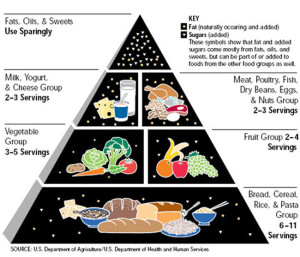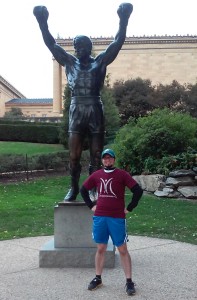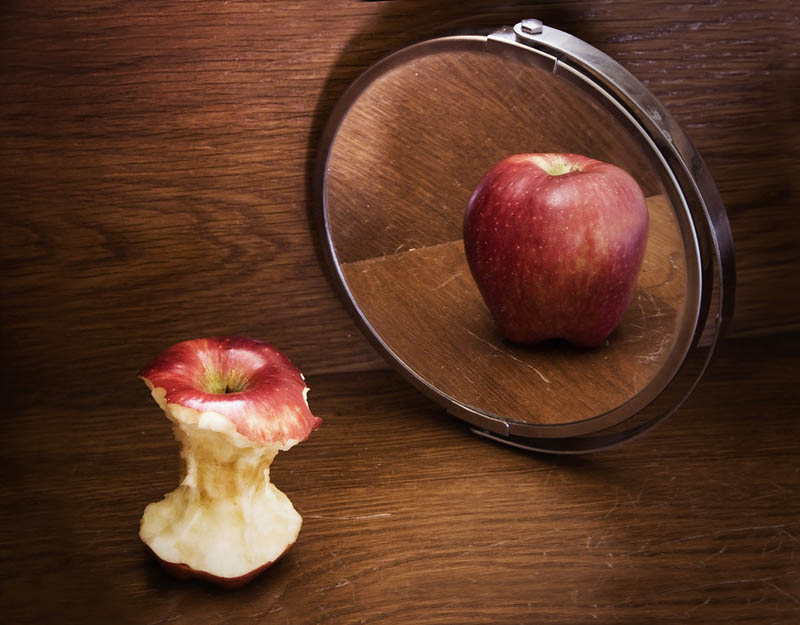There has never been a time in my life when I did not feel fat.
I was never directly bullied for my weight when I was a kid, but I was always aware of it. There was an undercurrent of worry to my mother’s persistent efforts to teach me about nutrition. I remember having colored cards that represented servings on the now-obsolete Food Pyramid, which I would move from one envelope to another as I “spent” them throughout the day. I was required to join one sport or physical activity per season, a melange that included a lot of left-field daydreaming (few balls ever sailed that far), soccer goalkeeping (I didn’t have to run much, and had the advantage of surface area when the ball came at me), and one ballet performance where I was cast as “the boat,” a part where my body was literally covered by a cardboard set piece as I danced across the back of the stage.

My favorite activities were ice skating, because it required big puffy winter clothes, and swimming, where my body was hidden by water and my buoyancy was an asset. Although I thought of myself as anti-sport and proudly self-identified as a nerd, in retrospect I did and enjoyed a lot of athletic activities as a child. My elementary school summers were spent hiking in the mountains or swimming in the rivers of Vermont, where I grew up, and the winters were filled with cross-country skiing, skating over frozen lakes, and trekking through snow-covered forests. Yet even when I passed the swimming test and got my first job as a YMCA lifeguard at 15, I was never thin. And I knew it.
What started as an uncomfortable but accepted childhood reality — one friend nicknamed me “chipmunk” because my cheeks were fat — grew into a filter of shame that overlaid my self-image. As the new kid in middle school, having just moved south to Pennsylvania and away from my New England roots, I took to wearing huge, oversized T-shirts over leggings, a combination that was well out of fashion but which concealed my lumpy body from sixth-grade eyes.
My new hyper-awareness of body image coincided with the advent of puberty. The shock and dismay that I would later recognize as dysphoria stemming from my trans* identity was immediately mixed up with body shame. In retrospect, that body shame might have been the reason why I didn’t understand my gender identity until much later, when I was halfway through college: I knew that my body felt wrong and awful, but rather than realizing that it was because I was a man growing unwanted breasts, I assumed that it was because I was fat and ugly.

Transition has helped me to make incredible progress towards a positive body image. Part of this is due to physical body changes, like hair growth and fat redistribution, that stem from hormone treatment. Part is simply the relief that comes with aligning my physical body with my gender identity — I recognize myself when I look in the mirror, rather than staring at a stranger. Another part is the shift in expectations that comes with a new set of gender norms: where I was previously seen as a stocky, broad-shouldered, big-footed girl, I’m now a medium- to slim-built man. My clothes are sized small or medium instead of large to extra-large. As transparently artificial as that barometer is, it still makes me feel better.

Yet even as a confident, self-assured, outspoken adult, I still struggle with my body and weight, and I think a lot of that stems from being raised as a girl. Our society glamorizes Photoshopped supermodels and bombards women with unrealistic body images and product advertisements that play on shame and self-hatred, and it’s hard to shake off those messages. The ideal that I imagine for myself is not a hunky, muscular, square-jawed movie star but a slim, slight-shouldered, and slightly androgynous masculinity that has more in common with British alternative rock than, say, pro wrestling. Is this because I accept a wider spectrum of masculinities, or because I was bombarded throughout my childhood with the message that big is not beautiful? It’s hard to say.
What worries me is that I, at thirty-one, am staring at the mirror and yearning for the flat stomach of rock stars and fashion models. Even after transition, after rejecting the expectations that came pre-packaged with my assigned sex, after taking control of my own gender identity and exercising my agency to live as my authentic self, I still dream of being skinny.
If my female upbringing is still warping my body image two decades later, what does that mean for today’s fifteen-year-old girls?
